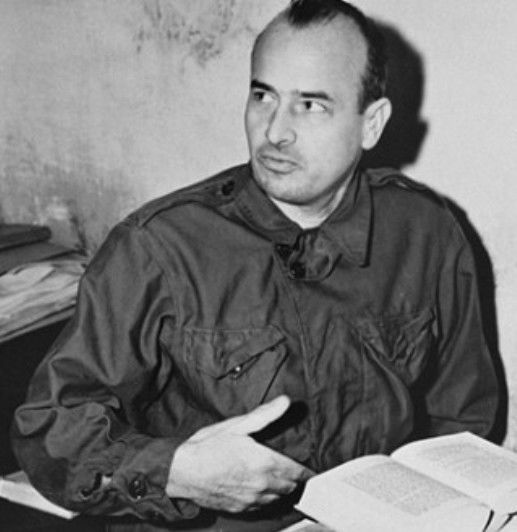Ironically, Adolf Hitler had his own defence counsel - Hans Michael Frank. He supported National Socialism and the extermination of the Reich’s enemies at the same time as being a committed defender of human rights. However, the "rights'' he defended were within the limits set by the fascist regime. Even the most inhuman repression didn't seem to bother him much - from his perspective the legitimacy of crimes undertaken by the state was much more important than the crimes themselves.
Ironically, Adolf Hitler had his own defence counsel - Hans Michael Frank. He supported National Socialism and the extermination of the Reich’s enemies at the same time as being a committed defender of human rights. However, the "rights'' he defended were within the limits set by the fascist regime. Even the most inhuman repression didn't seem to bother him much - from his perspective the legitimacy of crimes undertaken by the state was much more important than the crimes themselves.
Now, when people talk about the "rule of law", they are usually referring to a democratic state. But, in fact, each political system - once in power - passes laws according to its needs. Therefore, in a dictatorship, the “rule of law” becomes the “dictatorship of law” and there can always be found lawyers who will advocate and champion this oppressive style of government, as was clearly seen under Nazism.
However, not all top Nazis shared Frank's legal enthusiasm. For example, Heinrich Himmler, Martin Bormann and Joseph Goebbels believed the best type of enemy was a dead one - whether killed lawfully in a public execution or whether strangled or gassed without having enjoyed due process - the end justified the means. Conflicts between Frank and other influential figures in the Reich continued for a long time and once, while addressing an audience of lawyers, he even turned to the Führer for help: "Führer, protect human rights defenders!"
Adolf Hitler, however, also considered due process an unnecessary formality - that the important thing was to get shot of the enemy - and when he got pretty tired of Frank`s complaints, he removed him from all his positions, except for the post of Governor-General of Poland. He was of more use to the Reich in this role, so far as Hitler was concerned. And it seems as though Hitler was right, because the disgraced but nevertheless enthusiastic jurist strained every sinew to further the Reich’s cause to such an extent that the native Poles who saw him at work, dubbed him "The Butcher of Poland".
The dock in Nuremberg therefore seemed the best place for him as soon as the war ended.
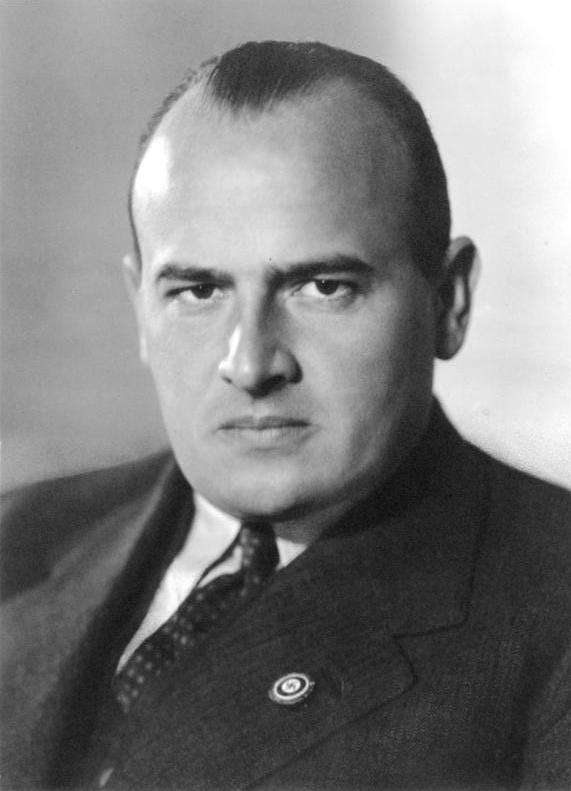
The Careerist: Stormtrooper, Veteran, Lawyer
Having been born in 1900, he was too young to have fought in the First World War. He studied law in Munich and Kiel and in 1924 he defended his doctoral dissertation. He became interested in National Socialism quite early on, although there is some evidence that he had previously been a supporter of Kurt Eisner (a German Jewish left-wing politician who overthrew the monarchy in Bavaria in November 1918 and became the region’s first republican prime minister). But it was just a phase. Hans joined the Sturmabteilung (SA) by September 1923 and took part in the Beer Hall Putsch in November of that year - a failed coup d’etat led by Hitler in Munich and for which he imprisoned for nine months, having been sentenced to a five-year term. Frank was a true veteran of the fascist movement.
Frank defended Hitler in 150 different trials as his personal lawyer - before coming to power, the Führer frequently sued. He also complied with the delicate request of his client - he conducted a secret investigation, which proved that there was not a single drop of Jewish blood in Hitler.
Eventually, Frank became the main defence counsel for the party, regularly representing senior members in court. Frank became particularly popular in the NSDAP in 1930 when he represented the interests of three Reichswehr officers accused of belonging to the Nazi organisation. The trial attracted the attention of the press, since Hitler himself testified against the then leadership of Germany.
The Governor General: Coloniser, Slave owner, Executioner
After the Nazis came to power, the career of Frank - who held important and prestigious positions in the Reich from then on - really took off. Among other titles, he was appointed Minister of Justice of Bavaria and the Reich Minister of Justice, founder of the Institute of German Law, president of the German Law Academy and a member of the Reichstag. However, the pinnacle of his career came when he was made governor-general of the Polish General Government - in which position he became famous as one of the main organisers of large-scale terror against Poles and Jews.
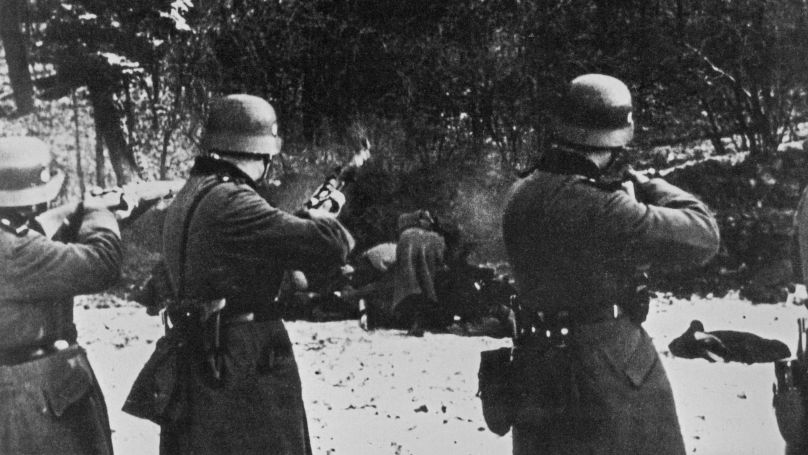
Having occupied Poland, Germany annexed a number of regions - Poznan, Katowice, Pomorze - and out of what remained formed a separate administrative-territorial entity, the General Government, whose capital was in Cracow. Warsaw was also part of the region and the Germans completely controlled this territory with only German laws being in force in the General Government.
On maps published in the USSR in 1940-1941, the General Government of Poland was referred to as the "area of German interests", and the border between the General Government and Germany was the same as the state border of the German Empire with the Russian Empire before the First World War. This large territory was ruled by Hans Frank.
However, later at the Nuremberg trials he tried to convince the judges that he did not have full authority over the territory, since Himmler and others from Hitler's circle constantly interfered with him, and did not even inform about their actions. That's partly correct. Nevertheless, the Governor’s powers were extensive, and in general, it was Frank to whom power over the territory belonged.
The population in the land under his authority was divided into categories that had very different rights. First of all came the Germans from Germany (Reichsdeutsche) who were the most privileged of all; next came local Germans (Volksdeutsche). The Ukrainians and the so-called Gorals - Polish highlanders declared by the Germans a special people whom they called Goralenvolk - were next in the pecking order but significantly inferior to the Germans in regard of civil rights. The rest of the Poles came next, and were about as low down as one could get, apart from the Jewish population who were disenfranchised. During this, Frank pursued the ancient policy of divide and rule in the General Government: he pitted Ukrainians against Poles in every possible way, and set both of them against the Jews.
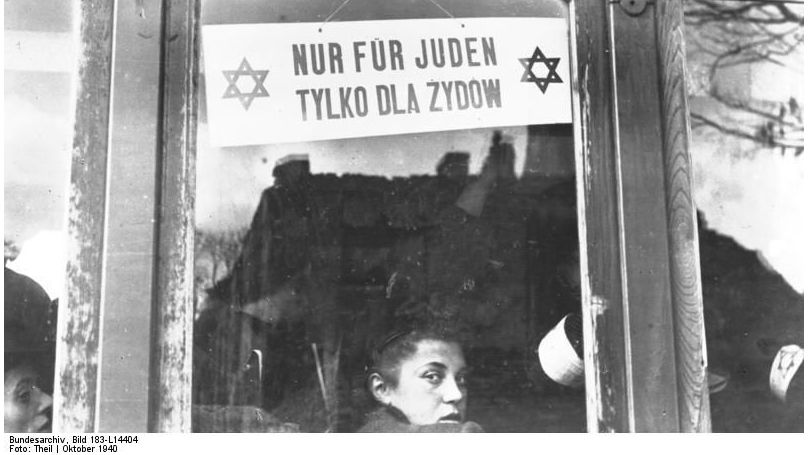
For someone so keen on the law, the legality of his actions in the General Government didn’t seem to trouble him too much. “I openly admit,” he declared, “that our rule here will probably cost the lives of several thousand Poles, especially among their clerical elite... The main aim is to complete a great National Socialist mission in the East. Therefore, our goal will not be to create a constitutional state here... Anyone who seems suspicious of us will be immediately eliminated.”
He also added that: “Poland should be treated like a colony. Poles will become slaves of the Great German Empire." And he lived up to his promise: he shamelessly robbed the "colony" and exploited the Poles, as a true slave owner.
The Creator of Ghetto: Anti-Semite, Sadist, Murderer
The Governor-General was even more ruthlessly opposed to the Jewish population of Poland. If the Poles were destined to be slaves, the Jews were doomed to death. “With regard to the Jews, I proceed only from the hope that they will disappear,” Frank told his subordinates on 16 December, 1941.
“In Berlin we were told: why stand on ceremony - eliminate them yourself. Gentlemen, I must ask you to arm yourselves against any kind of pity. We need to exterminate Jews everywhere, wherever we meet them and wherever it is possible, in order to preserve the imperial unity... You cannot approach such uniquely huge events with old views."
Among other things, in this post as Governor-General, Frank worked on the "final solution to the Jewish question". More than 85 percent of Polish Jews had been sent to death camps by December 1942. The Warsaw ghetto was his idea - it was Frank who ordered its creation in October 1940. During the ghetto’s existence its population plummeted from 450,000 to 37,000.
Between 19 April and 16 May 1943 the ghetto inhabitants rebelled but were brutally suppressed by SS forces, with about 13,000 slaughtered, 6,000 burnt alive as the result of a mass arson of buildings perpetrated by the Germans. The 15,000 surviving Jews were sent to the Treblinka concentration camp where more than 99 percent of the prisoners were Jewish: Janusz Korczak, the famous educator and defender of children’s rights, died there with his children.
The Renegade: Chess Player, Liberal, Catholic
Frank was a controversial figure and there were plenty of examples of his eccentricity. Frank, being a great lover of chess, held a number of major tournaments during his General Government, which were attended by the then-world champion, Russian Alexander Alekhine (although by this time he had become a French citizen) and several famous Jewish chess players despite his determination to exterminate the entire Jewish race. Stranger still, Frank invited his Jewish guests to a reception at his home, which would have been on the most lavish scale as he was renowned for his luxurious trappings, although living in a starving country. However, only one of the Jewish players came to visit the Nazi, the Latvian-born Aron Nimzowitsch who died in 1935 and who is famous among chess players for the "Nimzowitsch Defence". The Führer's circle, who were so appreciative of Frank’s arrangements in the Warsaw ghetto, were absolutely scandalised by these chess "pranks". Goebbels was livid and demanded Frank be punished. Frank, of course, knew about this reaction at the top, but he continued to tease his beloved Führer.
Frank is also known for the fact that, during the "Night of the Long Knives" he stubbornly but unsuccessfully tried to prevent extrajudicial reprisals against the stormtroopers of Ernst Röhm, whom Hitler considered to be a rival. Later, in a personal audience with Hitler, he supported the idea of Minister of Justice Gürtner to disband concentration camps - a seditious idea which was immediately rejected by Hitler. Another disappointment for Frank came after he drafted a new criminal code, limiting the rights of the Gestapo and was humiliated to see it immediately sent to the archive.
Still, what more does a man deserve who had gone in only one decade from being an outspoken "human rights defender" and adversary of concentration camps to an enthusiastic advocate of wiping out the entire Jewish population in the Warsaw ghetto he devised.
Frank's relationship with Himmler and Bormann finally deteriorated to the point that he was making protests openly. But it was only when he learnt that Odilo Globocnik - the monstrous head of the SS and police in Lublin - had evicted the Poles so that land could be occupied by the Volksdeutsche, that Frank resumed his relationship with the legalities and to declare the need for Germany to return to the "legal framework" - whatever that was. He offered to resign - an offer which Hitler, who had every need of as many scapegoats as he could hang on to, did not accept.
Eventually, Frank was one of two defendants (along with Albert Speer) who pleaded guilty at the trial. In Nuremberg, he announced that he had become a Catholic and considered the trial to be "the world judgment of God's will, designed to sort out and put an end to the terrible era of suffering under Adolf Hitler."
The Defendant: Plunderer, Kleptocrat, Murderer, Liar
Prosecutors had no difficulty in prosecuting Frank because when arrested he voluntarily handed over his personal diaries (43 volumes), which detail his activities as Governor-General of Poland. The charge of “conspiracy against world peace” was quickly dropped, as the defendant had never been in so powerful a position as to qualify for that. But he did receive his punishment - the gallows - on two other counts: “War crimes and violation of international conventions” and “crimes against humanity”.
In his final statement, Frank remarked: “I am grateful that I was given the opportunity to prepare a defence and justification against the accusations raised against me. But it is God's eternal justice in which I hope our people will be secure, and to which I faithfully submit.” Some found his remorse sincere - people don’t usually lie before death, what’s the point? Others, however, felt the “repentant” Frank lied so much even at the trials - trying to dismiss charges of corruption, which even the Germans accused him of, or denying he had taken art treasures from Polish museums to his house in Schliersee, in southern Germany - that one couldn’t put any trust in anything he said.
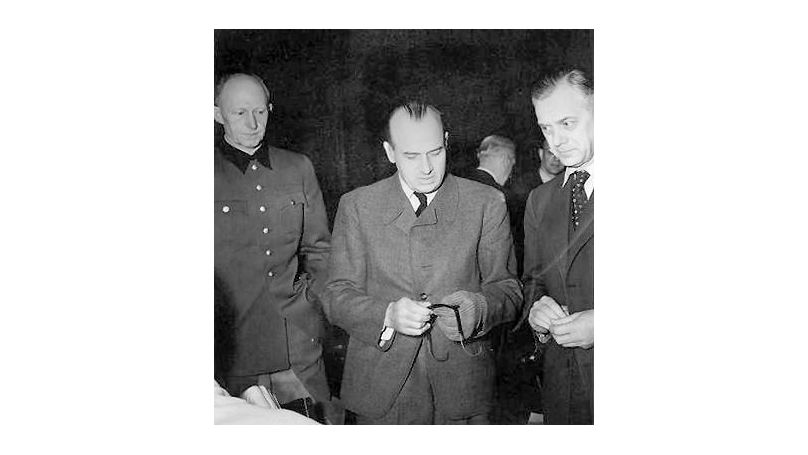
While trying fruitlessly to dodge claims of looting famous pieces of art, Frank recounted in detail how Polish museums and churches were plundered by others: “I am sure that art treasures were stolen to an immeasurable extent either as war booty or under some other pretext. During the registration of the art treasures, Adolf Hitler gave the order that the Veit Stoss altar from St Mary's Church in Cracow… [and] the Duerer etchings in Lvov should be removed and taken to the Reich.” And other things of the same sort.
And, of course, the apotheosis of hypocrisy was the claim that Frank found out about the existence of concentration camps in Poland only in 1944. It was proved at the trial that this was not the case. However, even without evidence, such a claim contradicted basic common sense. Himmler, avoiding “unnecessary talk”, did keep “human rights activist” Frank out of many issues related to the camps, but the Governor-General of Poland simply could not ignore what was happening under his very nose in Treblinka, Sobibor, Majdanek, and Belzec.
And a truly repentant sinner does not run away from punishment, on the contrary, he tries to atone for his sins. But Frank fled the General Government in January 1945 as soon as the Soviet Army approached. Nor did he surrender to the Americans, but was captured by them in May in southern Bavaria. Had it not been for his arrest, he would have remained in hiding.
After all, the words of a habitual liar aren’t worth the air they are carried on and are outweighed by far by his deeds, which, in the case of Frank, are real and terrible indeed. Even Frank’s son Niklas was unconvinced by his father’s remorse and decades later he published a book in which he called his father “a slime-hole of a Hitler fanatic”.
And so Frank shall remain in people's memory.
